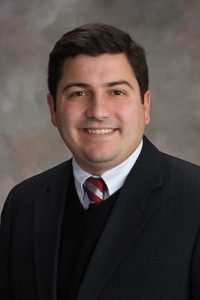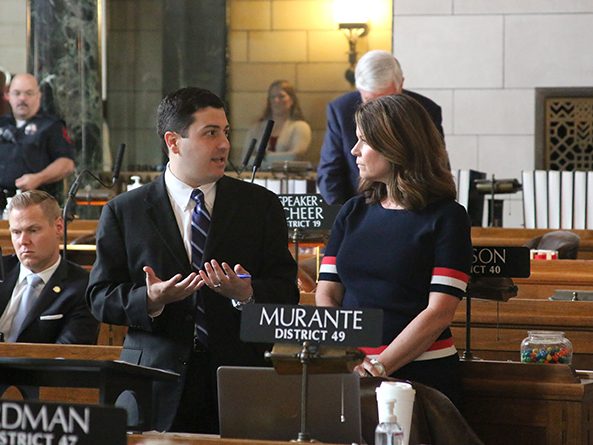Election administration clarifications advanced
The Legislature advanced a bill from general file April 25 that would change how legislative vacancies are filled.

Currently, when a legislative seat becomes vacant, the governor appoints a person to serve in that seat. If the vacancy is created more than 60 days before a general election, then the seat would be permanently filled by the candidate who wins the election. If it 60 days or less before a general election, the appointee serves the rest of the term.
LB451, introduced by Gretna Sen. John Murante, would set an earlier deadline of Feb. 1. He said the bill would provide more time for commissioners to properly administer elections and for voters to make well-informed choices as to their elected representatives.
The provisions for filling legislative vacancies also would apply to the University of Nebraska’s Board of Regents.
Omaha Sen. Tony Vargas opposed changing the process for filling legislative vacancies. He said constituents should have a say in who represents them as soon as reasonably possible.
“I’m concerned that the alternative to making sure there’s enough time and the right process in place is an appointed person would serve longer,” he said. “That doesn’t really give the public more control over who is serving the district.”
Murante and Vargas agreed to work on a compromise amendment before the bill is debated again.
The bill would enable county election commissioners to run for elected office in counties of more than 100,000 people. Douglas, Sarpy and Lancaster are the only counties that currently meet the population threshold.
Candidates filing for political office would be required to file a statement of financial interest before March 1 of the year in which the election will be held, or before filing for election, if the filing deadline is after March 1. Failure to do so would result in the candidate not appearing on the ballot.
The bill also would change from July 1 to June 15 the date in even-numbered years that certain political subdivisions must certify the political offices to be filled in an upcoming election. The provision would apply to each reclamation district, county weed district, village, county under township organization, public power district with an annual gross revenue of less than $40 million and educational service unit.
Finally, the bill makes several technical changes to the delivery and returning of early voting ballots.
A Government, Military and Veterans Affairs Committee amendment would remove provisions from the bill allowing election commissioners to file for office, while still allowing them to campaign for that office.
The committee amendment also incorporated into the bill provisions of LB314, also introduced by Murante, which lengthened the time before an election in which a city must file a proposed economic development plan with the election commissioner or county clerk. As amended, the plan must be filed no later than 50 days prior to a special election, no later than March 1 prior to a primary election and no later than Sept. 1 prior to a general election.
The amendment would increase the number of days prior to an election that an election notice must appear in the relevant newspaper from 40 to 42. In addition, it would allow the secretary of state to use general funds for maintenance and security of the state’s centralized, computerized voter registration system.
Sen. Suzanne Geist of Lincoln expressed concern that allowing election commissioners to campaign for office while serving in their official capacity could create an appearance of impropriety.
In response, Murante introduced an amendment that would completely reinstate the prohibition on election commissioners filing for and campaigning for elected office while serving as commissioner.
Following the adoption of the Murante amendment on a 30-0 vote, senators adopted the committee amendment 34-0 and advanced the bill to select file 37-0.


